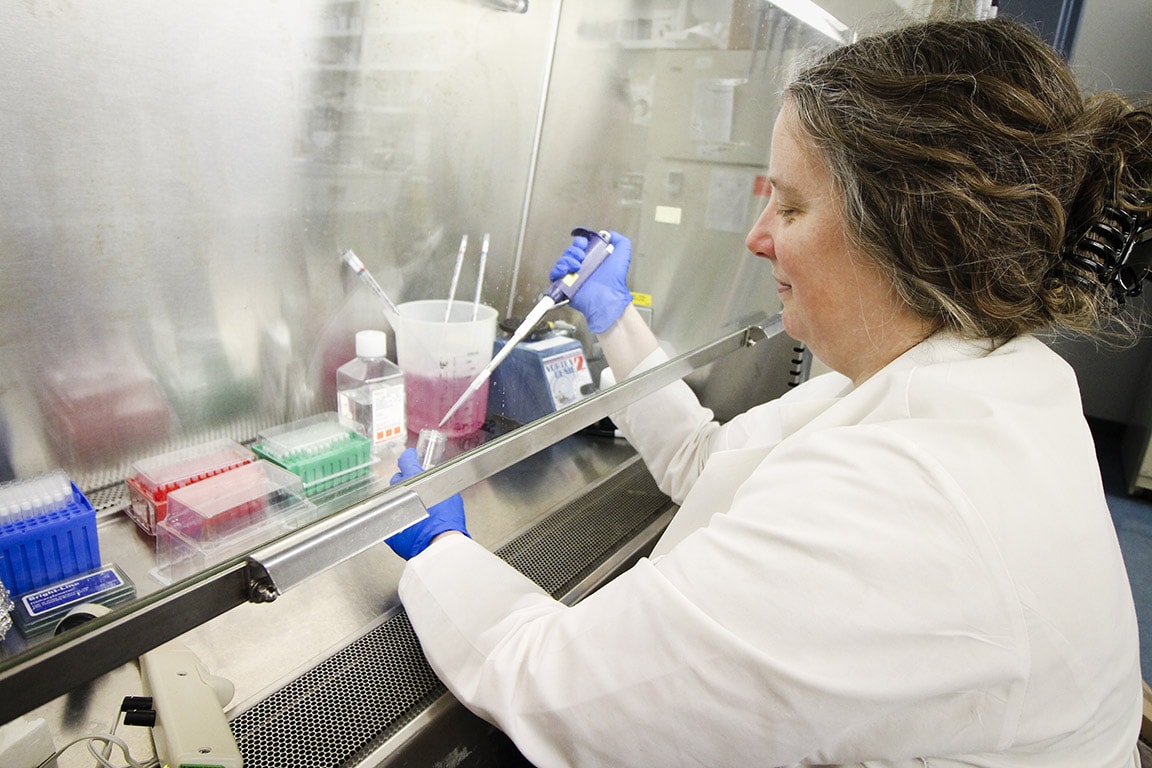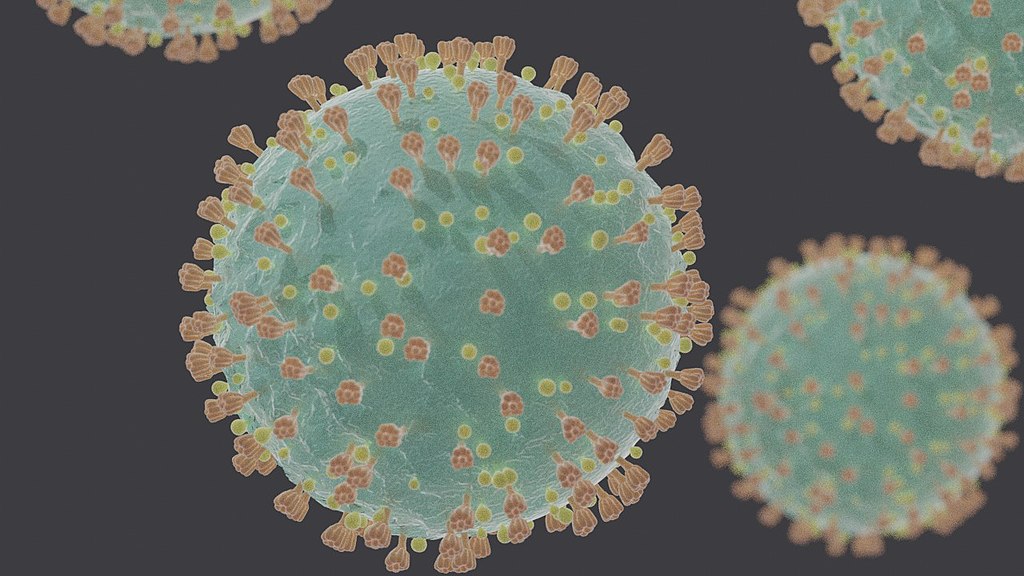In a new National Institutes of Health (NIH) study, Saint Louis University is testing the effectiveness of an antiviral drug to treat COVID-19. The treatment, remdesivir, works by blocking viruses’ RNA replication. “A virus works by getting into your cells and replicating itself,” explains Dr. Sarah George, the study’s lead researcher and an associate professor of infectious diseases at Saint Louis University. “If you can stop it from making copies, you can stop the infection in its tracks, protecting both patients and anyone they may transmit the virus to.”
Remdesivir has shown promise treating COVID-19 in cell cultures, and it has been tested in animal models as an intervention for SARS and MERS, which are both types of coronavirus. “Past studies look promising, and the drug has a known safety profile,” George says. “Since this virus is brand new to humanity, there are absolutely no approved drugs or treatments. The sooner we can get the data, the sooner we will have treatment.”
Patients at SSM Health Saint Louis University Hospital with lab-proven cases of COVID-19 will be given the option of enrolling in the study. Half of the test group will be administered remdesivir, and the other half will receive a placebo, but George says everyone will get the supportive care they need to treat their symptoms. “We’re checking to see if the drug produces better outcomes,” she explains. “That means faster recovery times, fewer patients on ventilators and more people surviving.” She estimates that the study’ first phase will be fully enrolled soon, and the NIH will have enough data to start its analysis by mid-May.
With no approved treatments for the new coronavirus currently available, George says it’s important that people don’t turn to the Internet or news for possible options. “Regrettably, there has been a lot of unwarranted media hype around interventions like hydroxychloroquine that is not backed up by research,” she notes. “We need good data and good studies to find treatments and a vaccine for COVID-19. It’s going to take months of work, and it’s important that we support the research that will get it done.”
Pictured: Dr. Sarah George
Photo courtesy of Saint Louis University








